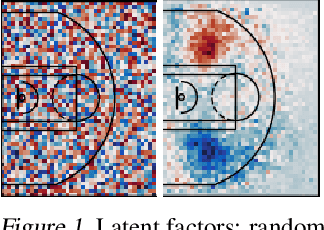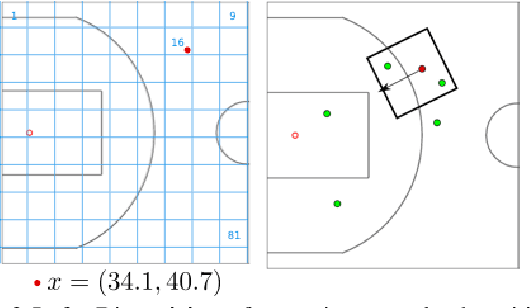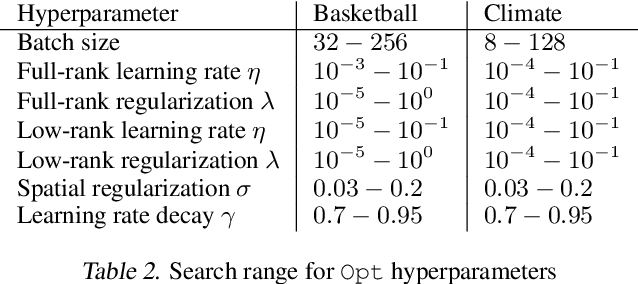Multiresolution Tensor Learning for Efficient and Interpretable Spatial Analysis
Feb 13, 2020Jung Yeon Park, Kenneth Theo Carr, Stephan Zhang, Yisong Yue, Rose Yu




Efficient and interpretable spatial analysis is crucial in many fields such as geology, sports, and climate science. Large-scale spatial data often contains complex higher-order correlations across features and locations. While tensor latent factor models can describe higher-order correlations, they are inherently computationally expensive to train. Furthermore, for spatial analysis, these models should not only be predictive but also be spatially coherent. However, latent factor models are sensitive to initialization and can yield inexplicable results. We develop a novel Multi-resolution Tensor Learning (MRTL) algorithm for efficiently learning interpretable spatial patterns. MRTL initializes the latent factors from an approximate full-rank tensor model for improved interpretability and progressively learns from a coarse resolution to the fine resolution for an enormous computation speedup. We also prove the theoretical convergence and computational complexity of MRTL. When applied to two real-world datasets, MRTL demonstrates 4 ~ 5 times speedup compared to a fixed resolution while yielding accurate and interpretable models.
 Add to Chrome
Add to Chrome Add to Firefox
Add to Firefox Add to Edge
Add to Edge